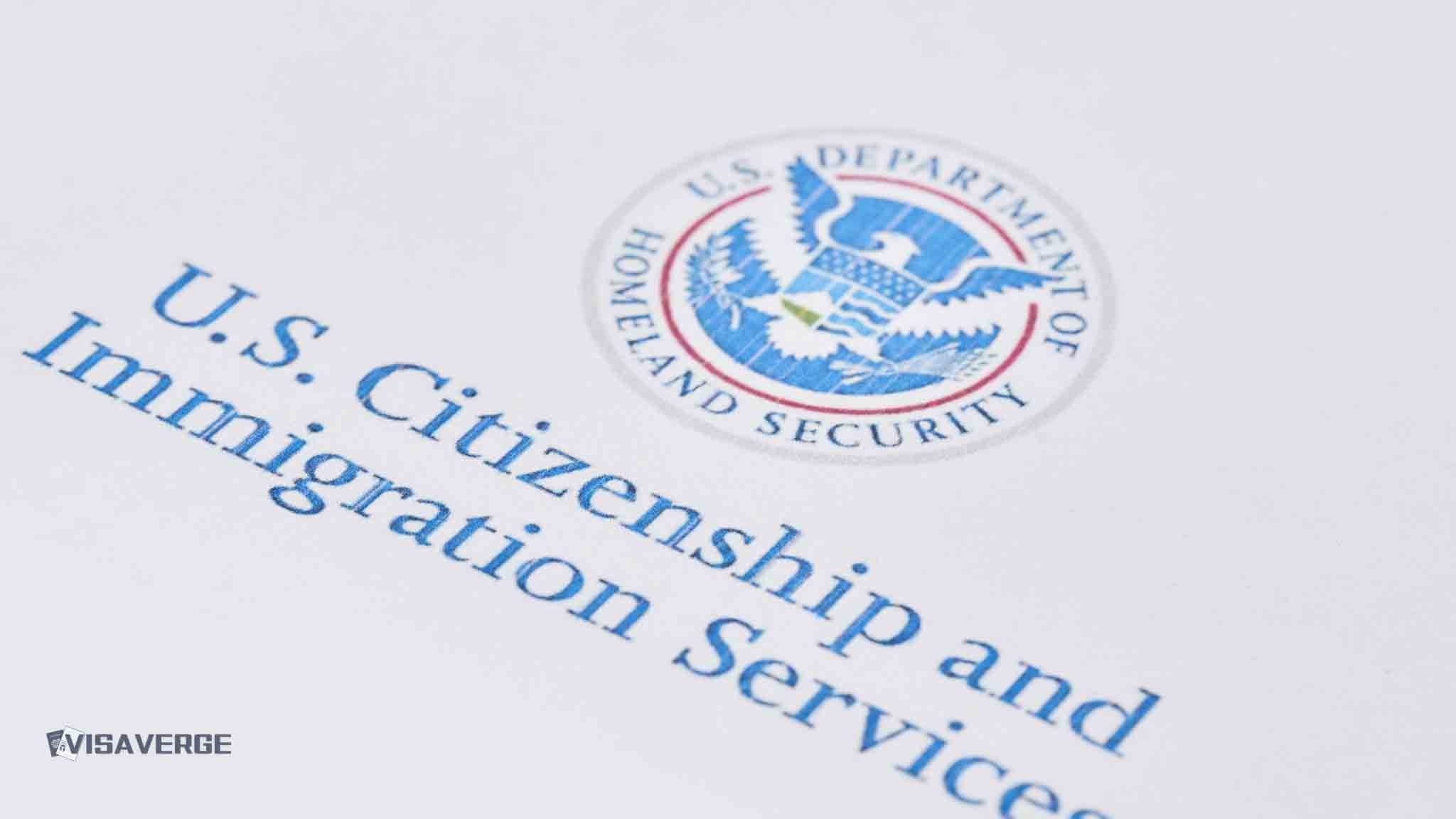(UNITED STATES) Traveling internationally while your I-601 waiver is still pending can be a stressful and risky process, especially if you plan to use Advance Parole (Form I-131) to re-enter the United States 🇺🇸. Many people in this situation worry about what could happen at the border, how long the process will take, and what steps they need to follow to avoid problems with U.S. Customs and Border Protection (CBP). This guide will walk you through the entire journey, step by step, so you know what to expect and how to protect your immigration status.

Understanding Advance Parole and the I-601 Waiver
Advance Parole lets certain people travel outside the United States 🇺🇸 and return without giving up their application for a green card (adjustment of status). You apply for Advance Parole using Form I-131. On the other hand, the I-601 waiver is a special request to forgive certain immigration problems, like staying in the U.S. too long without permission, having a criminal record, or making false statements to immigration officials. You apply for this using Form I-601.
If you have a pending I-601 waiver, it means you are asking the government to forgive something that would otherwise make you ineligible to stay in or return to the United States 🇺🇸. The problem is, if you travel before your waiver is approved, CBP officers at the airport or border can refuse to let you back in. This is because your reason for being inadmissible has not been cleared yet.
Step-by-Step Process: From Application to Re-Entry
- ✅ Filing the Forms
- Advance Parole (Form I-131): You must fill out and submit this form to ask for permission to travel while your green card application is pending. Make sure you provide all required documents and fees.
- I-601 Waiver (Form I-601): You must also submit this form if you have a reason that makes you inadmissible. This could be unlawful presence, a criminal conviction, or misrepresentation. Include all supporting evidence, such as proof of hardship to a U.S. citizen or lawful permanent resident family member.
- ✅ Waiting for Processing
- Processing Times: As of early 2025, the I-601 waiver takes about 12 to 15 months to process. If you file the I-601A (a similar waiver for people inside the U.S.), it can take up to 32 months. Advance Parole applications usually take a few months, but you should not travel until your I-601 waiver is approved.
- USCIS Account: Create and maintain an online USCIS account to track your case status and receive updates.
- ✅ Responding to Requests for Evidence (RFEs)
- Sometimes, USCIS will send you a letter called a Request for Evidence (RFE). This means they need more information to decide your case. If you get an RFE while you are outside the United States 🇺🇸, it can be hard to respond quickly. Delays in answering can slow down your case or even cause it to be denied.
- Action: Respond to any RFE as soon as possible. If you are abroad, make sure someone in the U.S. can check your mail and notify you right away.
- ⚠️ Risks of Traveling While I-601 Is Pending
- CBP Discretion: When you return to the United States 🇺🇸 using Advance Parole, a CBP officer will review your documents. If your I-601 waiver is still pending, the officer can decide not to let you in. This is especially likely if your inadmissibility is based on serious issues like criminal convictions or fraud.
- Possible Outcomes: If denied entry, you could be sent back to your home country, placed in removal proceedings, or barred from returning for years.
- 📋 What to Do If You Must Travel
- Consult a Lawyer: Before making any travel plans, talk to an experienced immigration attorney. They can help you understand your risks and prepare the right documents.
- Prepare Documents: If you must travel, carry all your approval notices, proof of hardship, and your lawyer’s contact information. Be ready to explain your situation to CBP.
- Stay Informed: Check the latest travel rules and CBP policies at CBP’s official travel page.
- ✅ Returning to the United States 🇺🇸
- CBP Inspection: When you arrive, a CBP officer will ask about your travel, review your Advance Parole document, and check if your I-601 waiver has been approved. If it’s still pending, you may face extra questions or even denial of entry.
- Be Honest: Answer all questions truthfully. Lying or hiding information can make things worse.
- ✅ After Re-Entry
- Follow Up: Once back in the U.S., keep in touch with your lawyer and USCIS. Respond quickly to any new requests or notices.
- Continue Your Case: Wait for your I-601 waiver decision and complete any next steps for your green card application.
Estimated Timeframes and What to Expect
| Process | Estimated Time |
|---|---|
| Advance Parole Approval | 3-6 months (varies by case) |
| I-601 Waiver Approval | 12-15 months (I-601), up to 32 months (I-601A) |
| RFEs | Can happen at any time during processing; response time is usually 30-90 days |
During these waiting periods, it is safest to stay in the United States 🇺🇸. Traveling before your I-601 waiver is approved puts you at risk of being denied re-entry, even if you have Advance Parole.
Recent Policy Changes and Their Impact
In 2024 and 2025, USCIS started using new versions of immigration forms, including the I-601. This means you must use the latest forms and provide complete, updated documents. There is also more scrutiny on cases involving criminal records or missing paperwork. Humanitarian cases are taking longer because of extra reviews by border protection officers.
As of June 2025, new travel restrictions apply to people outside the United States 🇺🇸 who do not have valid visas. However, if you are a lawful permanent resident or have valid Advance Parole, you are still allowed to return, as long as you do not have unresolved inadmissibility issues.
Practical Tips for a Safe Process
- Wait for Approval: The best way to avoid problems is to wait until your I-601 waiver is approved before traveling.
- Stay Organized: Keep copies of all your forms, approval notices, and correspondence with USCIS.
- Monitor Your Case: Use your USCIS online account to check for updates and respond quickly to any requests.
- Legal Help: Always consult a lawyer if you are unsure about your situation or if you must travel for an emergency.
Case Example
Maria, a green card applicant from Mexico 🇲🇽, had a past immigration violation and needed an I-601 waiver. She applied for Advance Parole to visit her sick mother abroad. Her lawyer advised her not to travel until the waiver was approved, but Maria felt pressured by her family’s needs. She traveled anyway. When she returned, CBP questioned her about her pending waiver and past violation. Because her I-601 was not yet approved, she was denied entry and sent back to Mexico 🇲🇽. Maria’s case shows how important it is to wait for waiver approval before traveling.
What Authorities Expect from You
- Honesty: Always tell the truth on your forms and during interviews.
- Preparedness: Bring all required documents when traveling.
- Responsiveness: Answer any USCIS or CBP requests quickly.
What You Can Expect from Authorities
- Thorough Review: CBP and USCIS will carefully check your documents and case history.
- Possible Delays: Processing times can be long, especially for waivers involving criminal or fraud issues.
- Strict Rules: If your I-601 waiver is not approved, CBP can deny you entry, even if you have Advance Parole.
Official Resources
For more information about provisional unlawful presence waivers, visit the USCIS official waiver page. This page has the latest updates, instructions, and eligibility details.
As reported by VisaVerge.com, the safest approach for anyone with a pending I-601 waiver is to remain in the United States 🇺🇸 until the waiver is approved. This reduces the risk of being denied re-entry and helps keep your green card application on track.
Final Takeaways
- Do not travel internationally on Advance Parole while your I-601 waiver is pending unless absolutely necessary.
- If you must travel, consult a qualified immigration attorney and prepare all documents for CBP inspection.
- Stay organized, respond quickly to USCIS, and keep up with policy changes.
By following these steps and staying informed, you can protect your immigration status and avoid unnecessary risks during this complex process.
This Article in a Nutshell












